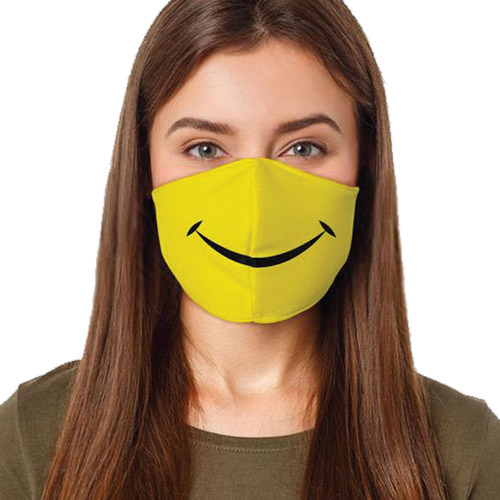
“Gray skies are gonna clear up”—everyone knows the next line sung by Tony Bennett—“Put on a happy face.” These days it is really difficult to know if someone has a happy or sad face. It’s hard to tell when you cannot see their mouths and facial features. Recently we read the overwhelming challenges that those who are deaf and read lips are facing. Masks with transparent plastic areas covering the lips are now available to them.
Is it still possible to be happy and smiley even though our mouths are covered behind a piece of material? Half of the time when we are out we do not even recognize people we are supposed to be familiar with. We never studied people’s eyebrows before and not all eyes are that expressive when there is a piece of material just below them.
So how do we maintain our happy countenance and positive feeling through all of this? Isn’t it true that before the COVID pandemic began, when we weren’t wearing masks, there were those who never let anyone know what their true feelings were anyway? For those who displayed apathy or lack of emotion with a stone-faced persona before, this mask wearing isn’t so different.
How many times do we smile at what we are being told, just to make the person we are facing feel good, when in actual fact we totally disagree? The usual “How are you?” and the usual “Fine, thanks,” knowing that the person has no interest in really hearing the answer as he is halfway down the street before the answer is out of your mouth, is a frustrating common occurrence.
The more we think about it, the masks have nothing to do with knowing whether or not a person is coping well. Those who have the right attitude toward life will swim through this period of our lives with the same positive attitude that they had previously. Those who have always been bitter and unhappy with little details in their everyday lives will continue to suffer and now blame their lack of positivity on the virus.
Last week Nina visited our daughter in Montreal at her group home, Maison Shalom. In order to see our daughter in the backyard of her group home, she had to wear a hospital gown, a mask and a pair of gloves. There was our daughter, who has plenty of reason to be miserable with her very limited life, wearing her mask and Nina could tell that she was smiling behind it: happy to see her mother and brother and to have the opportunity to finally be outside after months of being sequestered in her home. She is capable of crying and complaining, yet her gratitude shone through her mask.
This lesson we all need to learn. We have the ability to share gratitude, warmth and happiness through the masks that are covering our faces. Any of us who are walking around wearing them have to realize how fortunate we are that we are surviving this unusual time. Yes, it is annoying, boring (for many), challenging, lonely, but we are still alive and have every reason to be smiling under those masks. Let’s try to remember our gratitude, especially during these Nine Days, and forget the discomfort and annoyance. Wear a smile under your mask and hopefully that message will get through to others as you meet them in the same situation.
Rabbi Mordechai and Nina Glick are living in Bergenfield after many years of service to the Montreal Jewish community. Rabbi Glick was the rav of Congregation Ahavat Yisroel as well as a practicing clinical psychologist in private practice. He also taught at Champlain Regional College. The Glicks were frequent speakers at the OU marriage retreats. Nina coordinated all Yachad activities in Montreal and was a co/founder of Maison Shalom, a group home for young adults with special needs. They can be reached at nina@jewishlinknj.com.











